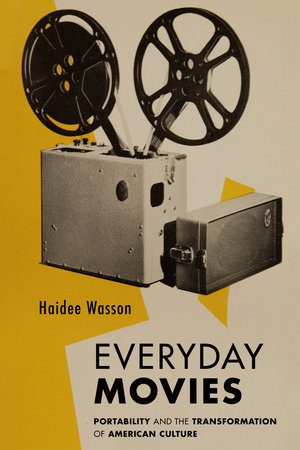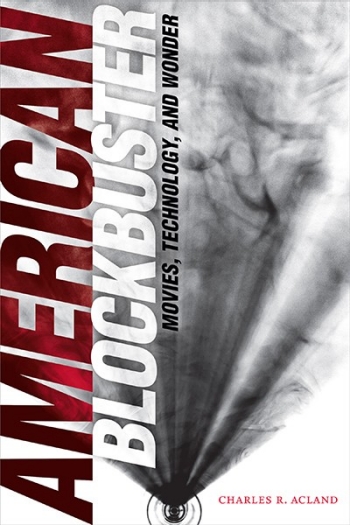Haidee Wasson’s Everyday Movies: Portable Film Projectors and the Transformation of American Culture wins SCMS book award.
May 26, 2022

MHRC Advisory Board member, and former co-director, Haidee Wasson’s Everyday Movies: Portable Film Projectors and the Transformation of American Culture (U of California Press, 2020), has won the prestigious Kovács Book Award from the Society for Cinema and Media Studies.
Everyday Movies documents the twentieth-century rise of portable film projectors. It demonstrates that since World War II, the vast majority of movie-watching did not happen in the glow of the large screen but rather took place alongside the glitches, distortions, and clickety-clack of small machines that transformed home, classroom, museum, community, government, industrial, and military venues into sites of moving-image display. Reorienting the history of cinema away from the magic of the movie theater, Haidee Wasson illustrates the remarkable persistence and proliferation of devices that fundamentally rejected the sleek, highly professionalized film show. She foregrounds instead another kind of apparatus, one that was accessible, affordable, adaptable, easy to use, and crucially, programmable. Revealing rich archival discoveries, this book charts a compelling and original history of film that brings to light new technologies and diverse forms of media engagement that continue to shape contemporary life.
Congratulations Haidee!
More information: https://www.ucpress.edu/book/9780520331693/everyday-movies
American Blockbuster honored in Choice Magazine
December 1 2021

MHRC Co-Director Charles Acland’s American Blockbuster: Movies, Technology, and Wonder was recently selected as Choice magazine’s 2021 Outstanding Title.
In American Blockbuster Charles R. Acland charts the origins, impact, and dynamics of the blockbuster movie, the most visible, entertaining, and disparaged cultural form. Acland narrates how blockbusters emerged from Hollywood’s turn to a hit-driven focus during the industry’s business crisis in the 1950s. Movies became bigger, louder, and more spectacular. They also became prototypes for ideas and commodities associated with the future of technology and culture, accelerating the prominence of technological innovation in modern American life. Acland shows that blockbusters continue to be more than just movies; they are industrial strategies and complex cultural machines designed to normalize the ideologies of our technological age.
Find more information on the book here
